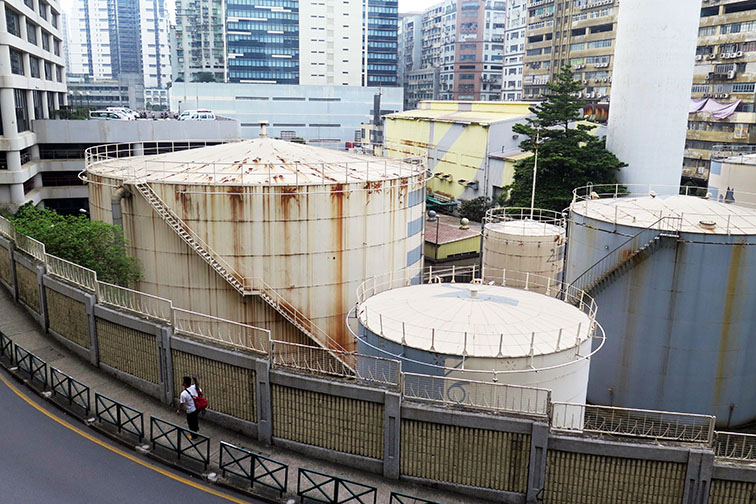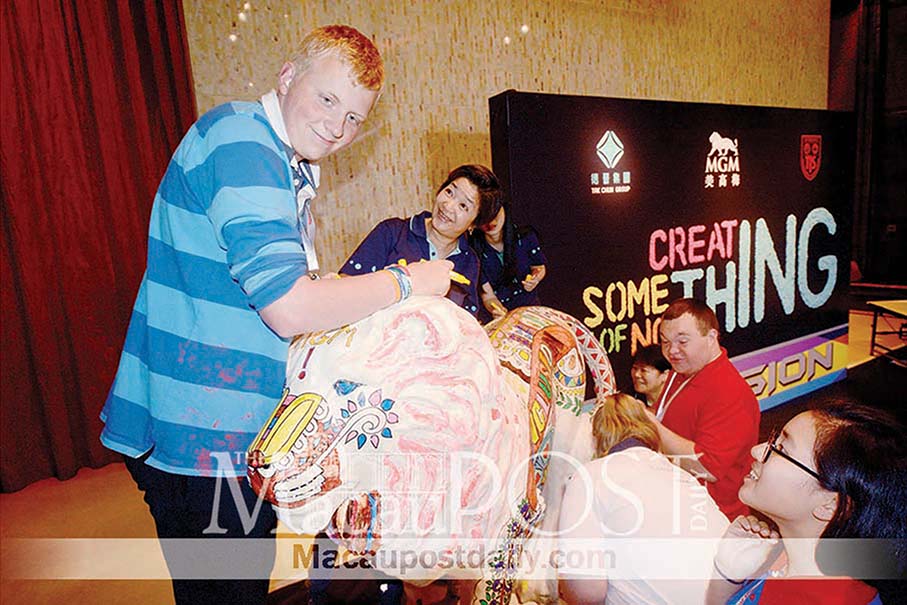After months of staying at home due to the novel coronavirus (COVID-19) threat, children can now safely go back to school to see their teachers and friends.
While frontline workers work round the clock fighting the virus so as to keep the city going and keep people safe during the epidemic, staff at the Education and Youth Affairs Bureau (DSEJ) have been incessantly doing their part in coordinating with medical professionals and school representatives to find the best way to safeguard children’s well-being and education while at home.
“We’ve been working non-stop,” DSEJ Director Lou Pak Sang told The Macau Post Daily in a recent interview at the bureau.
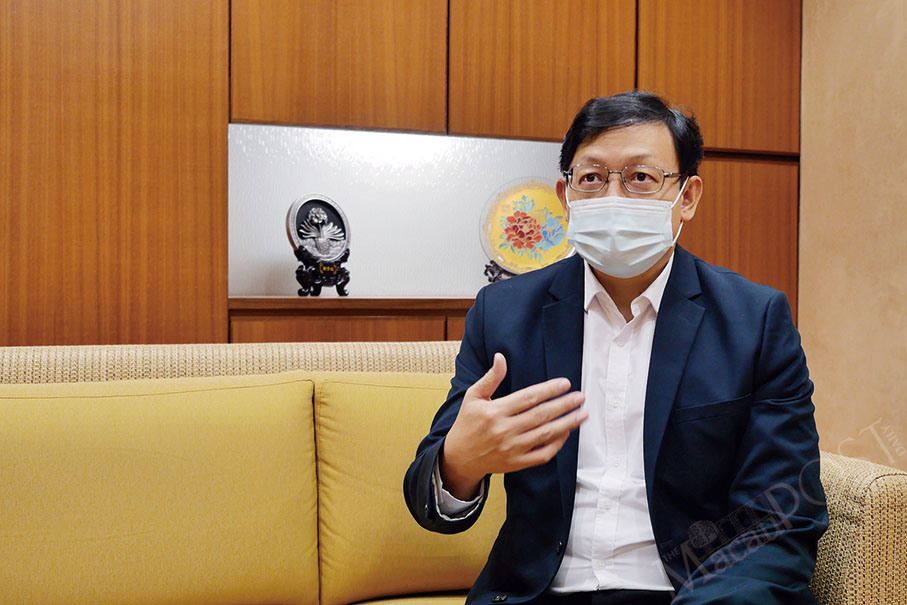
Education and Youth Affairs Bureau (DSEJ) Director Lou Pak Sang talks during the recent interview with The Macau Post Daily.
Since late December last year when he first heard about the virus having been detected in Wuhan, Lou said that the bureau has been in close communication with schools and tuition centres on pupils’ health and hygiene.
Since the government announced the shuttering of schools in late January and subsequently the suspension of non-essential public services for two weeks, many of the bureau’s staff members have been closely liaising with 77 schools to provide them with assistance and guidelines as classroom teaching and learning moved online.
Striking the right balance
Lou admitted that adopting online education during COVID-19 encountered some bumps at the beginning, particularly when the bureau asked schools not to teach pupils new things but, instead, to assist pupils in reviewing old material through which they could gain new insights.
“It was no easy task,” Lou said, adding, “Schools had their own requests, parents had their concerns, many people from society made suggestions, and what we at DSEJ could do is first ensure safety, serve pupils and strike the right balance.”
Lou admitted that this balance meant that pupils’ education would be slowed to a certain extent but pointed out that people shouldn’t only focus on what is in front of them.
“In psychology, when we reach a certain age, the things we learnt before suddenly make new sense to us, so during this [novel coronavirus] time, we didn’t want to give pupils too much to learn, as it also would be stressful for parents because at the end of the day they are not teachers,” Lou said.
He said that when they further explained to schools to adopt a “loose over tight” evaluation system for pupils and not to use their scores when moving up to the next grade, it put a lot of people’s minds to rest.
Back to school
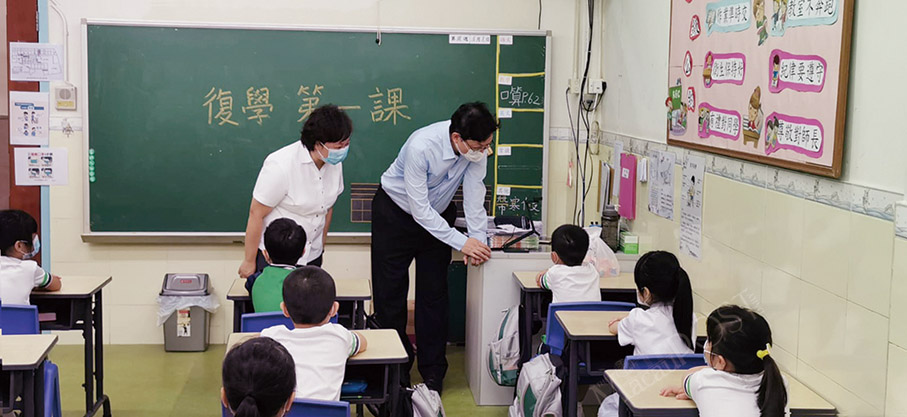
Lou visits children at a school as in-class teaching resumed on June 1.
“Whatever the policy is, there are bound to be people who oppose it,” Lou said, recalling the criticisms he received when he first mentioned plans for schools to resume in-class teaching, and also when the bureau decided it wasn’t time yet for schools to resume classroom teaching.
“That’s why we needed to strike a balance, which included getting professional advice from the Health Bureau and pupils’ safety,” Lou said, adding that although faced with pressure from society, the bureau was first of all responsible for pupils’ safety, constantly monitoring the virus situation and drawing up several plans when classes could resume and if schools were to remain closed for the rest of the year.
After many discussions and dialogues during meetings with the schools on the preparation work for the gradual resumption of classes from May 4, the bureau provided schools with new fever screening doors, wash basins and toilets where necessary, granted schools a one-off subsidy to buy hygiene products, and gave facemasks, cleaning products and hand sanitisers to schools, tuition centres and continuing education institutes that the government received from donations.
Now that all 61,000 primary and secondary school pupils can go back to their classroom, including about 3,000 cross-border pupils, Lou said that it was all thanks to everyone’s effort in cooperating with the government’s anti-epidemic measures. However, he also pointed out that even though Macau seems to be one of the safest places in the world as far as the novel coronavirus pandemic is concerned, people should never let their guard down.
While it was unlikely that classes would resume for kindergarten and special needs children this academic year, Lou suggested schools arrange for K3 children to go back to their classroom to see their teachers and friends or organise a group photo session so that they can wrap up their kindergarten years with some good memories.
For primary and secondary school children, Lou hopes the past few months gave them an opportunity to reflect on life, nature and person-to-person relations, and what it means to take responsibility.
“This has been an important lesson on life education,” Lou said.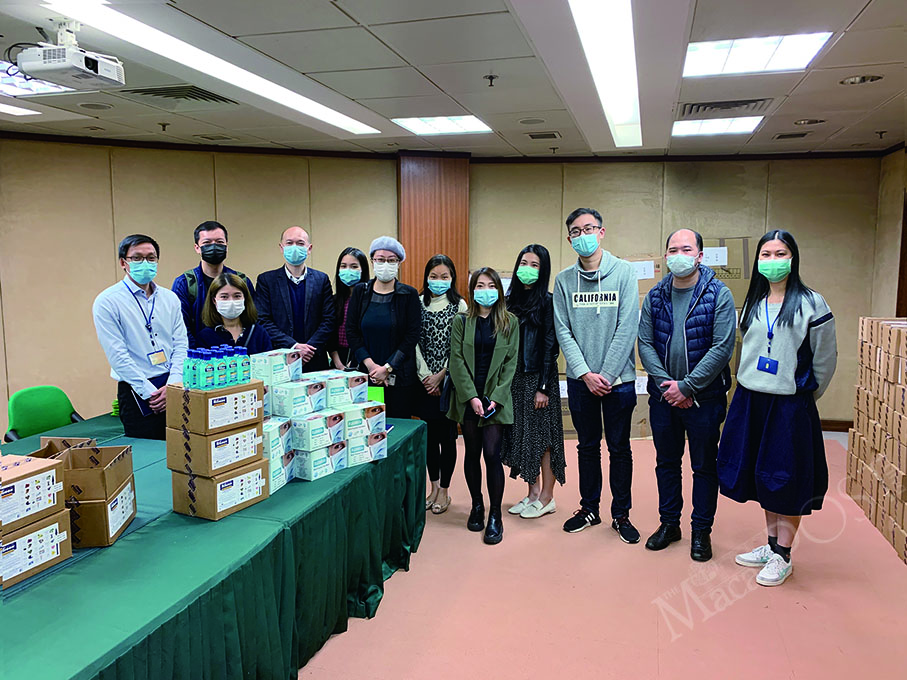
Representatives of tuition centres attend a recent DSEJ meeting about guidelines for anti-epidemic measures.
Future of education
Thanks to the introduction of “e-classes” by the bureau over the years, teachers and pupils are not new to online teaching and learning. However, when it came to months of learning at home over the past few months, the situation has highlighted how the bureau could improve its e-class programme.
“At the beginning, there were many things that we didn’t know how to implement but as weeks went by, we became familiarised with the concept and made improvements to get things running smoothly,” Lou pointed out. However, Lou acknowledged, there is one aspect that needs to be fixed, which is a standard system so that it can be used between schools.
After months of experience using online classes, Lou noted that the bureau has been working on developing its own e-learning platform that will be made available for all local schools to use for free.
“We’re not forcing schools to use it, it’s a resource that we’re providing schools with for free,” said Lou, adding that he expects to launch the platform in September at the earliest, ready to use for the 2020/21 academic year.
The bureau has also been busy carrying out research for the next 10-year plan for non-tertiary education for 2021-30, and also the next 7-year youth policy plan, where “search for truth; practicality with innovation” will be the direction for nurturing children in the new era.
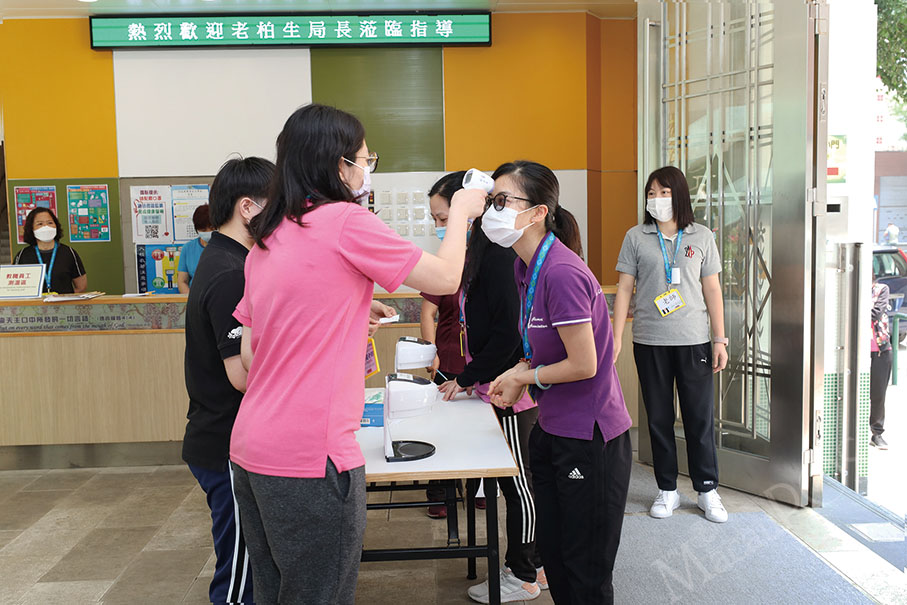
A school recently holds a drill as part of its preparations for the reopening of schools.
According to the bureau, the new 10-year plan will highlight nurturing pupils’ patriotic feelings for the nation and their perspective of the world, developing pupils’ “soft power”, raising their happiness and well-being, and strengthening their creativeness and technology education. A consultation document for the plan will be out later this year.
Moreover, the merger of the DSEJ and Higher Education Bureau (DSES) means that education planning and policy will be more coherent.
“The DSEJ has been providing pupils with education counselling services to prepare them for higher education, so combining two bureaus means resources can be used more efficiently and be more integrated,” Lou said. “It’s a positive thing for pupils and students as the education advancement is more coordinated and more comprehensive,” he added.
To make better use of resources in education development, Lou said that the bureau would be more vigilant when approving subsidies and grants, with priorities given to projects that are effective and practical for pupils’ well-being and learning.
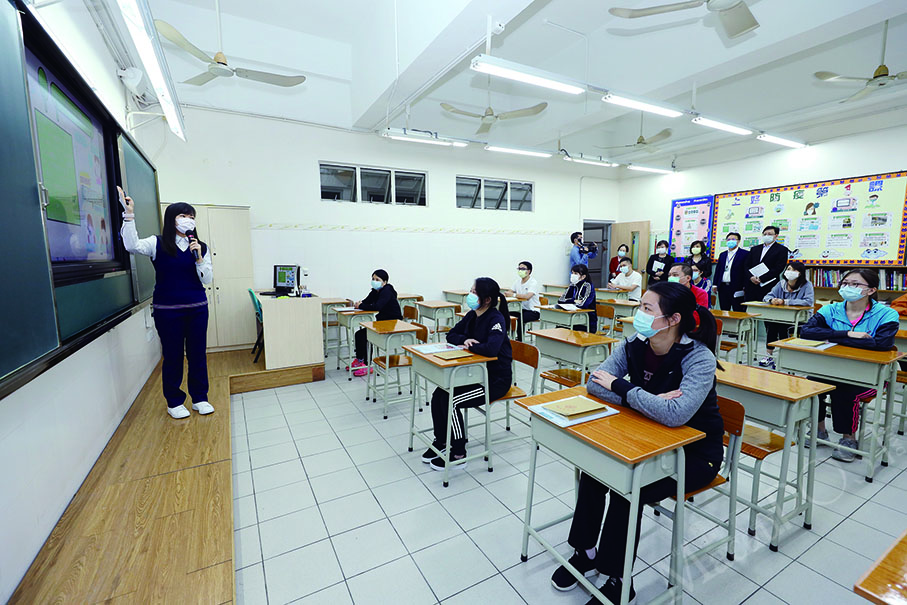
Lou and his staff attend a recent drill for the reopening of schools. Photos provided by DSEJ




